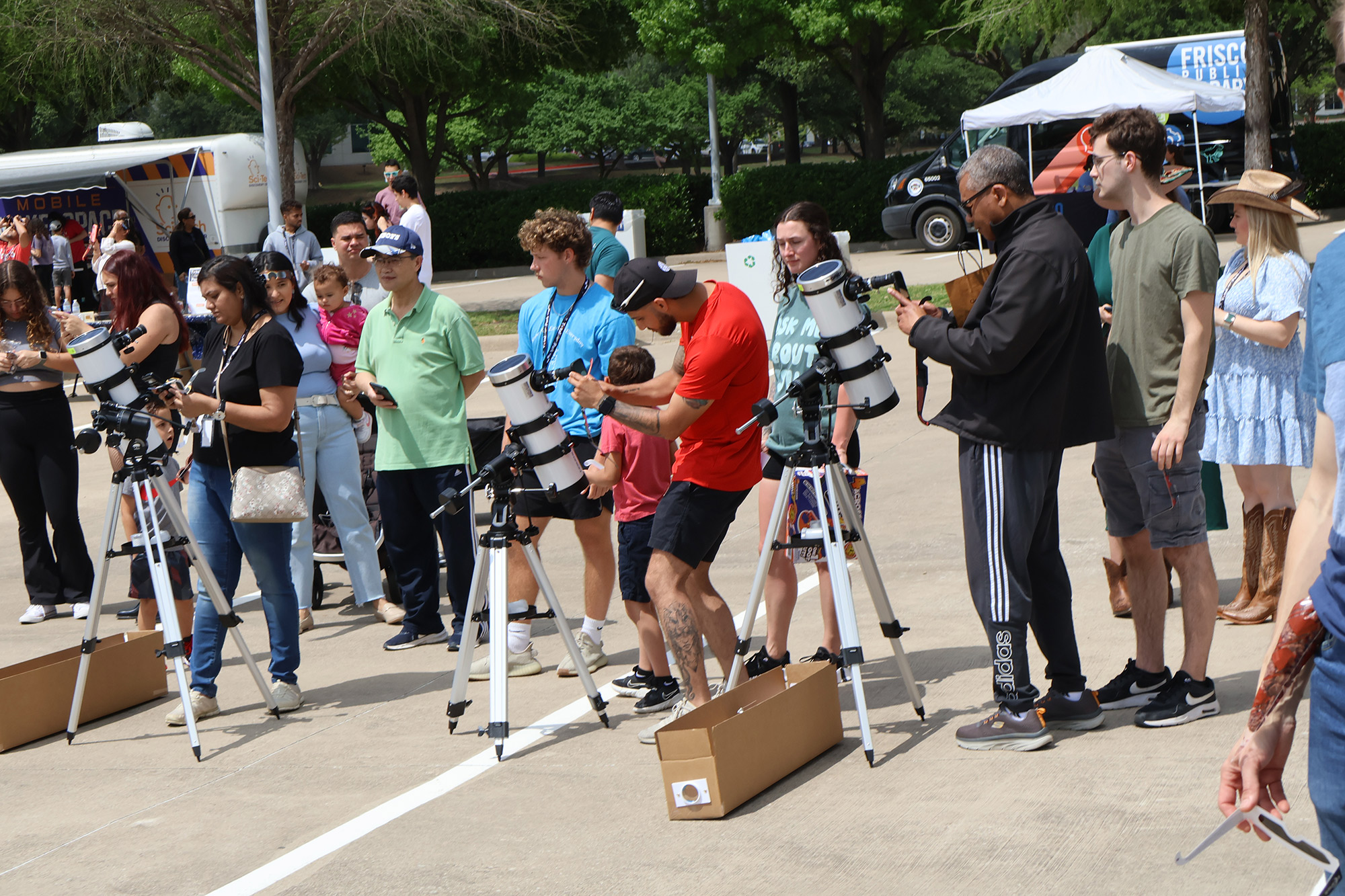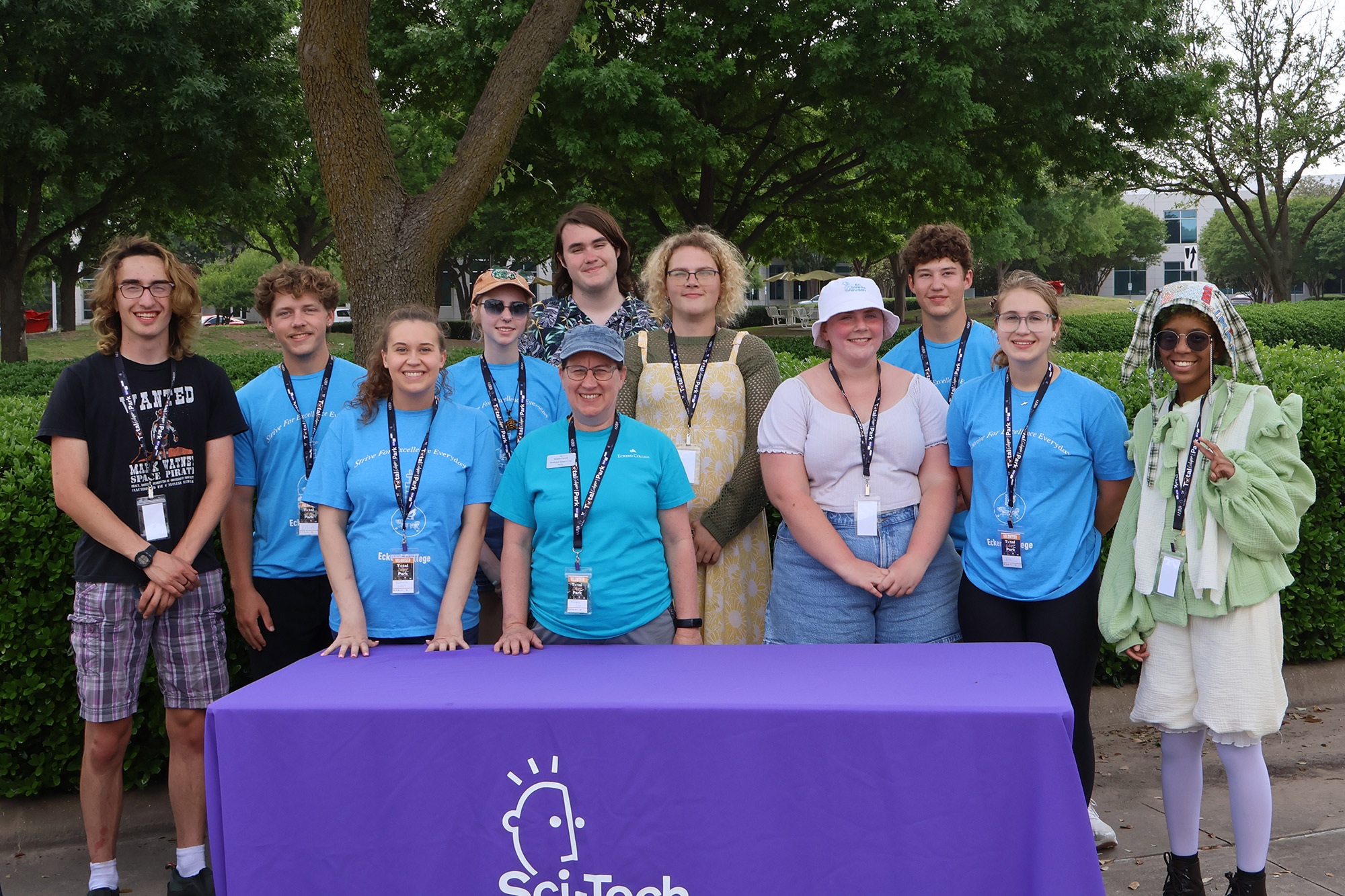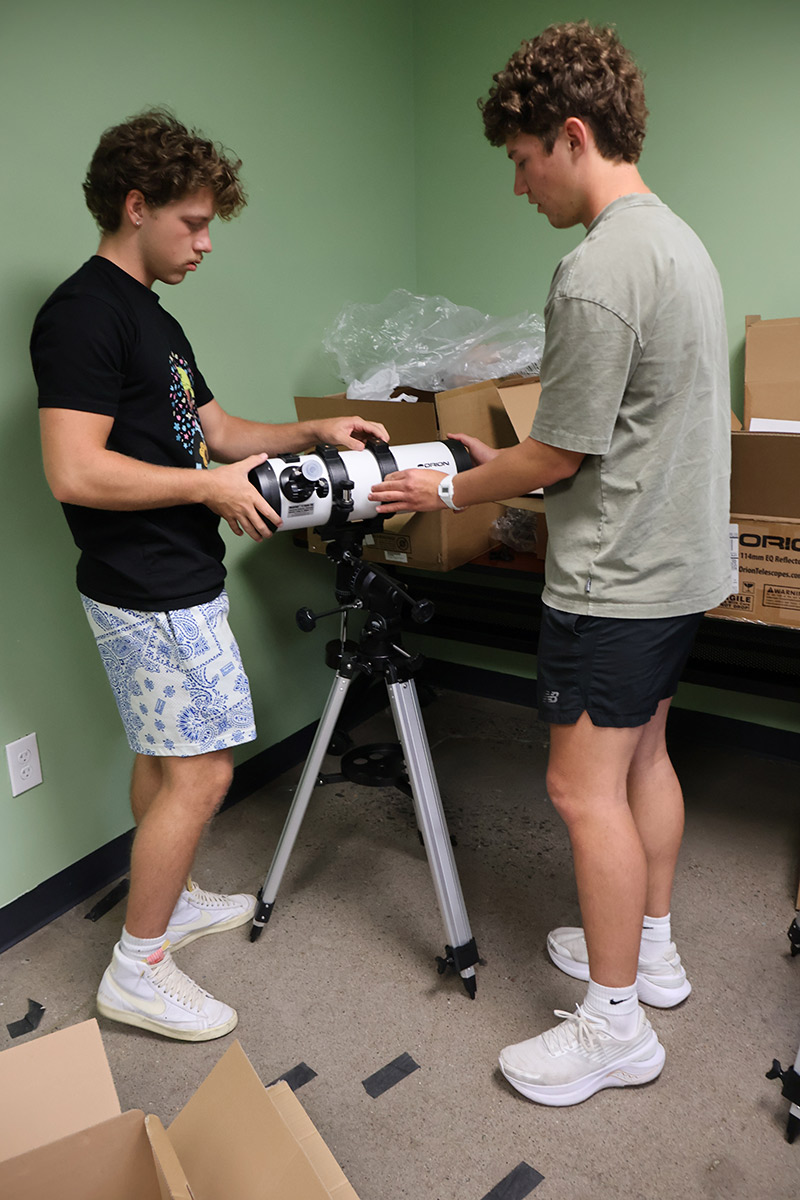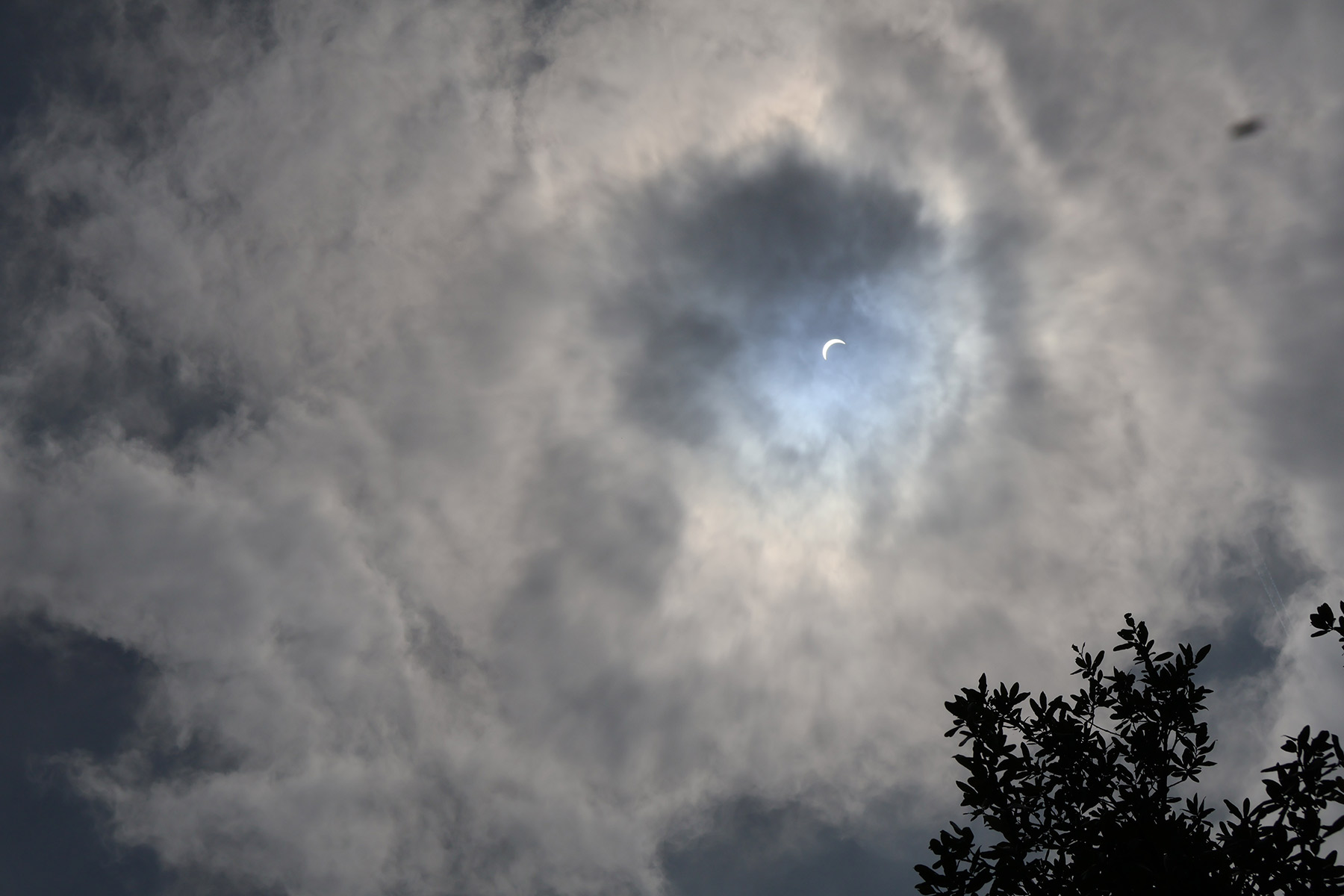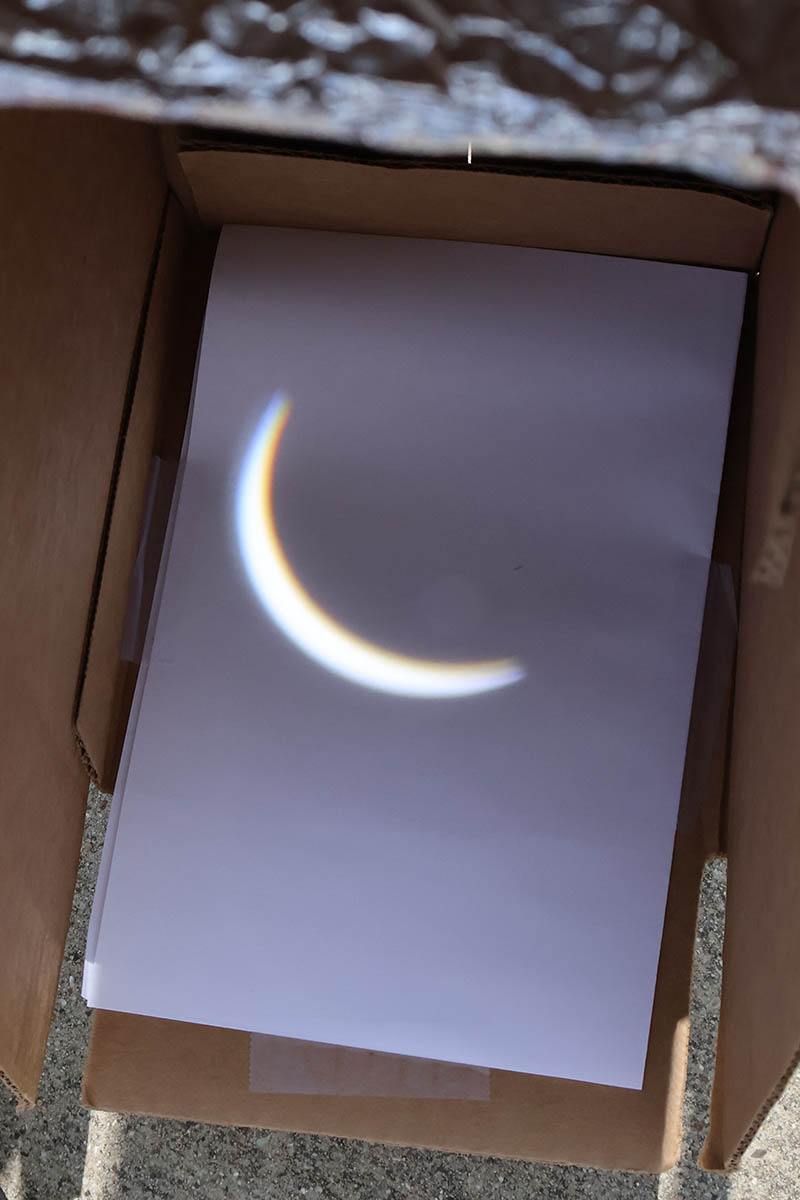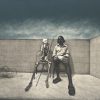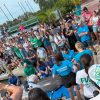In August 2017, Anne Cox, Ph.D., professor of physics at Eckerd College, drove to South Carolina to view a solar eclipse along its path of totality. She was hooked. When the next solar eclipse came along, in July of 2019, she planned to travel with her students to Chile, one of the key locations along the path.
But the trip was canceled. “I was eclipse chasing,” she says with a chuckle. “To be in the path of totality is fairly rare. It’s not a wide area. After I saw it, I remember thinking that I want to see this again.”
And on April 8 she did. This time she was in central Texas along with Stephanie Eckert, Ph.D., visiting assistant professor of physics at Eckerd, and 10 students from their Spring into Summer course Astronomy: Eclipse and Beyond.
Unlike most Spring into Summer classes at Eckerd, the travel portion came during the spring semester, instead of after it, because of the date of the eclipse. The class also was a service learning course that partnered with Sci-Tech Discovery Center in Frisco, Texas, as part of the city’s Total Eclipse of the Park event.
“We wanted to do educational outreach in the Dallas area, and the Discovery Center was really excited about our participation,” Cox explains. “We would be in the path of totality, we would have a good chance of sunny skies, and we wanted someplace that was one flight away. Dallas is easy to get to from Tampa.
“The day before the event, our student group helped build 10 telescopes. And then the day of the event, we worked at the telescope station, keeping the telescopes aligned on the sun and answering questions,” Cox adds. “We also brought large cardboard solar viewers, which we also showed the public.”
Meanwhile, back in St. Petersburg, students from the class who didn’t travel to Texas managed a solar eclipse viewing station for the partial eclipse seen from campus. The event drew dozens of curious faculty, students and staff.
For both groups of students who were part of the class, the eclipse offered a teaching moment. “It was an opportunity for our students to explain to people what they were seeing,” Cox says. “And to see themselves as scientific ambassadors.”
That, explains Christine Wooley, Ph.D., vice president for academic affairs and dean of faculty at the College, personifies the aim of Eckerd’s Global Education program, whether it’s Spring into Summer, Winter Term or a semester program.
“We know that what our students learn in our courses is applicable beyond the classroom and beyond their four years at Eckerd,” Wooley says. “We know that broadening contexts for learning, providing opportunities to take on projects, and experiencing learning as a collaborative act are core elements of a liberal arts education.
“When we incorporate travel into a course, whether it’s across the country or across the world, we distill and intensify these elements of the Eckerd experience,” she adds. “We show students how their Eckerd education travels with them, shaping the way they engage with the world and their work.”
A perfect example is Jupiter McLean, a senior visual arts student from Alpharetta, Georgia, who also is president of the Eckerd College MakerSpace, a club workshop on Eckerd’s campus devoted to building, engineering and creating. “There were about 200 to 300 people who came to the event,” Jupiter says. “I got to work with the Discovery Center and learn how they used different techniques to work with children or adults both with and without disabilities to make sure you can reach different populations. And how to get people excited about learning new things. I want to work in teaching after I graduate, and the trip was really helpful.”
As for exactly what accounts for the universal attraction to an easily explained celestial phenomenon, Cox has an answer. “It’s not really the science, although the science is really cool,” she says. “We can predict exactly where and when an eclipse will occur. But there is something, at least for me, that is very emotional about seeing the corona around the sun. And feeling the temperature change. And the light is weird. It’s the same brightness as dusk, but the colors are all wrong. There is no orange in the sky at all.”
Cox notes that the next solar eclipse in the continental U.S. won’t occur for another 21 years. “It will happen on August 12, 2045,” she adds. “And Eckerd College will just be in the path of totality.”
The nine Eckerd students who traveled to Texas included Cedar Benning, a senior mathematics student from Farmington, Minnesota; Lily Boucher, a first-year environmental studies and marine science student from Spartanburg, South Carolina; Ariana Cory, a junior marine science student from Seattle, Washington; Olin Duggan, a first-year international studies student from Montpelier, Vermont; Josef Flieg, a sophomore French and marine science student from Bloomsdale, Missouri; Desi Fox, a sophomore marine science student from Breezy Point, New York; Mika Horton, a first-year chemistry and mathematics student from Hanson, Massachusetts; Jupiter McLean, a senior visual arts student from Alpharetta, Georgia; and Jade Zikmund-Fisher, a first-year ancient studies and anthropology student from Ypsilanti, Michigan.
The three students who helped with on-campus eclipse viewing included Rachel Flickinger, a senior applied mathematics and marine science student from Poynette, Wisconsin; Geo Dauzvardis, a senior marine science student from Erie, Colorado; and Hannah Lander, a senior physics student from New Smyrna, Florida.





